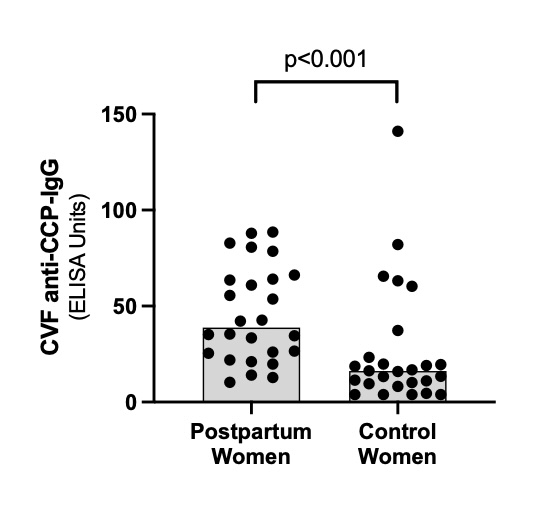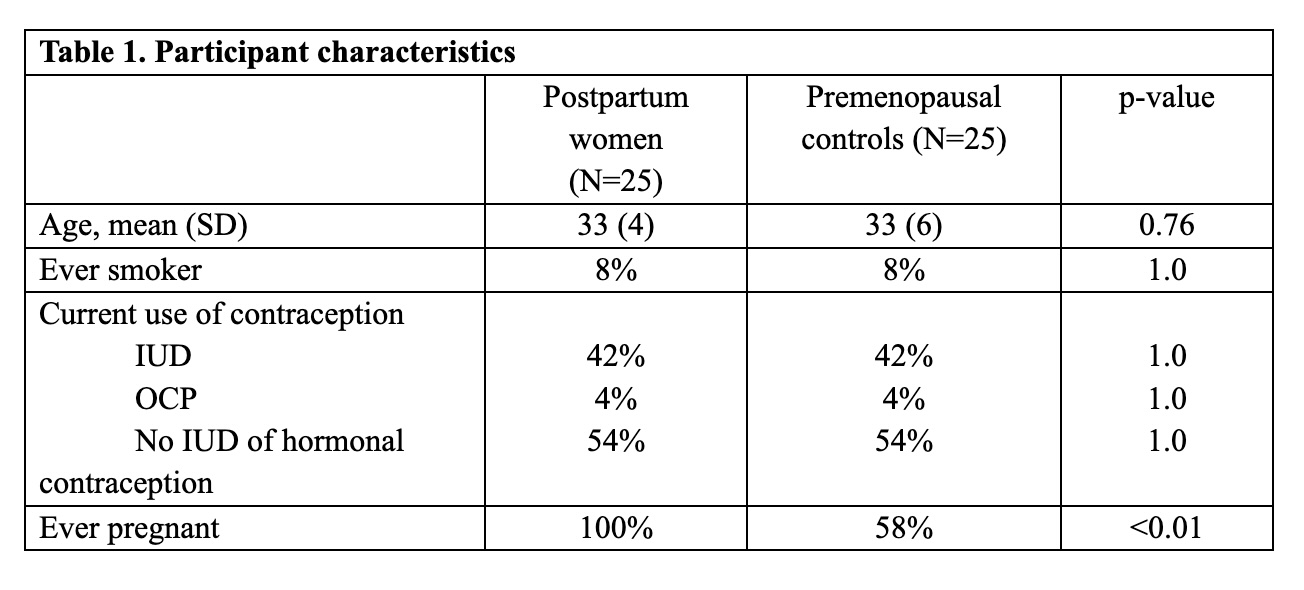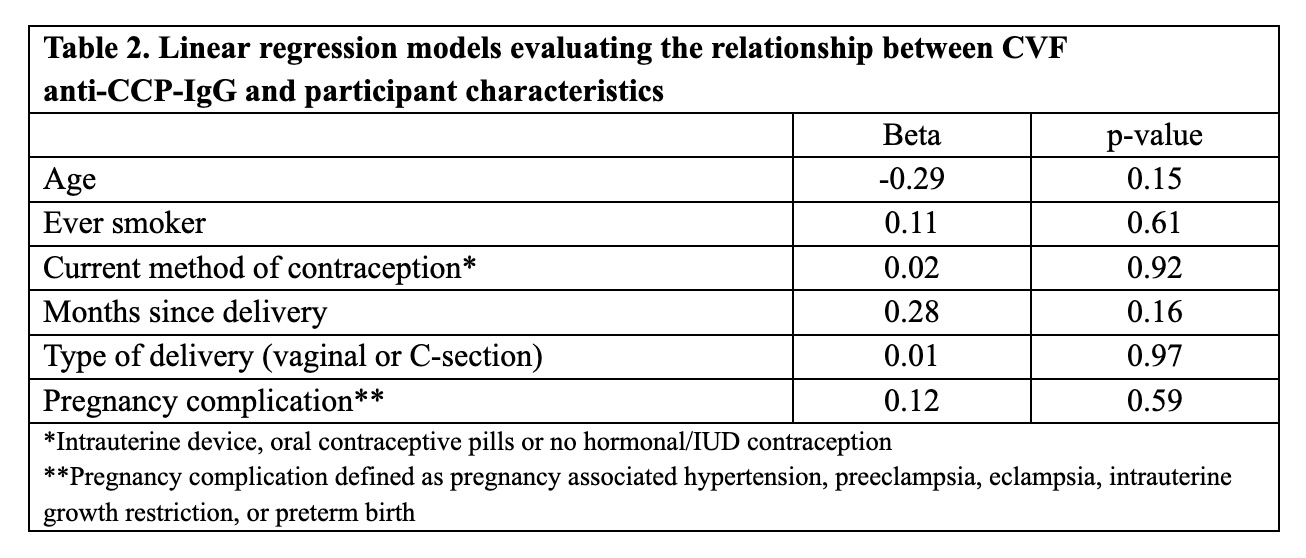Session Information
Session Type: Poster Session A
Session Time: 10:30AM-12:30PM
Background/Purpose: It is well established that women develop RA approximately three times more often than men. In addition, several risk factors for RA uniquely effect women, including the postpartum period. In the first year following childbirth, studies demonstrate an approximate 6-fold increase in RA incidence compared to age matched women who have not recently given birth. The exact mechanism by which the postpartum period contributes to RA pathogenesis is unknown. Our group has previously found that anti-cyclic citrullinated peptide (CCP) antibodies can be generated in the female genital tract mucosa in association with local inflammation in women without RA. Herein, we aimed to establish the relationship between anti-CCP generation at this female-specific mucosal site and the postpartum period.
Methods: We included 26 serum anti-CCP negative women without RA who had delivered a baby in the preceding 12 months and 26 serum anti-CCP negative premenopausal female controls matched on age, sex, smoking and contraceptive method use. All women self-collected a cervicovaginal fluid (CVF) sample with an aspirator or menstrual cup. CVF was processed with PBS, mechanical syringe-based homogenization, and centrifugation to obtain the cell-free supernatant. CVF supernatant was tested for anti-CCP-IgG (CCP3 ELISA, Werfen). Notably, IgG is the predominant antibody isotype of the vaginal mucosa and not IgA, like some other mucosal sites. CVF anti-CCP levels were compared between groups by Wilcoxon signed rank test and linear regression models.
Results: CVF anti-CCP-IgG levels were higher in postpartum women compared to matched controls (Figure 1). Postpartum women were more likely to have ever been pregnant compared to controls (Table 1), and higher CVF anti-CCP-IgG levels remained significantly associated with postpartum women after accounting for ever pregnancy in multivariable models (p=0.03). Within postpartum women, there was no significant relationship between CVF anti-CCP-IgG levels and age, smoking, current contraceptive method, months since delivery, type of delivery, or pregnancy associated complication (Table 2).
Conclusion: Anti-CCP-IgG levels are increased in the female genital tract mucosa in women without RA who were in the first year postpartum. Absence of serum anti-CCP in these women suggests local mucosal antibody generation. Additional studies are needed to understand the mechanisms by which childbirth can lead to anti-CCP generation in the female genital tract mucosa as well as whether inflammation and anti-CCP generation in the female genital tract could help to explain why the incidence of RA is increased during the postpartum period in premenopausal women.
To cite this abstract in AMA style:
Marcy D, Visser A, Lugo C, Sturm K, Demoruelle K. Anti-CCP Generation in the Female Genital Tract Is Increased During the Postpartum Period in Women Without RA [abstract]. Arthritis Rheumatol. 2024; 76 (suppl 9). https://acrabstracts.org/abstract/anti-ccp-generation-in-the-female-genital-tract-is-increased-during-the-postpartum-period-in-women-without-ra/. Accessed .« Back to ACR Convergence 2024
ACR Meeting Abstracts - https://acrabstracts.org/abstract/anti-ccp-generation-in-the-female-genital-tract-is-increased-during-the-postpartum-period-in-women-without-ra/



